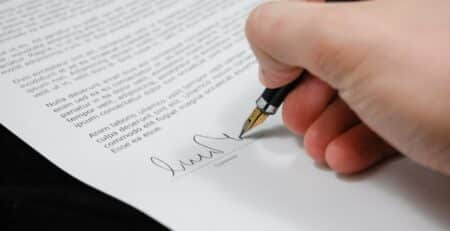A Guide To: First Registrations & Voluntary First Registrations
First Registrations
First Registration is the process by which property that is not registered with HM Land Registry (“the Land Registry”) becomes registered. When registered, the Land Registry assigns a specific ‘title number’ to the property, prepares a plan of the property and then maintains a record of future ownership changes, overages, mortgages, easements, or leases.
When must property be registered?
All unregistered property must be registered with the Land Registry in the following circumstances:-
- A purchase of property;
- Property being transferred by way of a gift or inheritance;
- Property being exchanged for other property;
- Leasehold property being transferred (that generally has more than 7 years left on the term of the leasehold at the time of the transfer);
- On the grant of a new leasehold (generally where the term is for more than 7 years from the date of grant); and
- The creation of a first legal mortgage (one that ranks in priority ahead of any other mortgages affecting the same property).
Tinsdills will deal with any compulsory registrations if they are part of a matter that we are instructed to act in.
Voluntary First Registration
If unregistered property is in your ownership, you can choose to register such property with the Land Registry voluntarily, even if you are not selling, transferring, or otherwise having dealings with the property. Tinsdills can review the deeds to the property that you wish to register with the Land Registry and apply for voluntary first registration on your behalf.
Benefits of voluntary first registration:-
- Registration will provide you with documented proof of ownership of the property, with a plan displaying your registered property boundaries.
- The title plan provides clarity in the extent of your property and may reduce the chance of any ambiguity or future boundary disputes;
- The Land Registry will assign a class of title to the property, which is guaranteed by the government;
- Selling or transferring property is generally a more straight forward process when the property is registered. This is because registered land is usually less time consuming to deal with, as opposed to original title deeds, which are generally rather lengthy and require a thorough review;
- Registration can protect your property against fraud. Once the property is registered, you will be able to set up a Land Registry Property Alert, which would notify you should someone try to alter the register to your property, such as if someone tried to fraudulently register a mortgage against or transfer your property;
- Once registered, there will be no need to safely and securely store the unregistered title deeds and documents as the Land Registry will take and retain copies;
- Copies of title deeds and documents can be requested from the Land Registry easily and at very little cost. Most deeds and documents can be requested and sent electronically;
- The Land Registry offer a discounted fee for voluntary first registration applications.
What is required to register property?
Tinsdills property team are experienced in registering unregistered property and we will deal with the process on your behalf from start to finish.
We will require all of the title deeds that you hold for the property, allowing us to conduct a thorough review of these deeds prior to registration with the Land Registry. We will also require a scale plan of the property to be registered, if one is not contained within the title deeds.
We will then make the necessary enquiries with the Land Registry and submit the application for registration. Once the property is registered, we will review the registered title to ensure all necessary rights, easements or otherwise are recorded on the registered title accurately and then provide you with the title documents provided by the Land Registry for your records.
What if the Title Deeds have been lost or destroyed?
You can still apply to the Land Registry for voluntary first registration of a property if the title deeds have been lost or destroyed. The Land Registry will require a Statement of Truth from the person claiming ownership of the property, giving a full account of the events that led to the loss or destruction of the title deeds, along with any other documents relating to the title of the property that you may have. Other parties who may have had possession of the deeds, such as a conveyancer or bank/building society can also prepare corresponding Statements of Truth, to be used as further evidence when submitting your application to the Land Registry.
The Land Registry will review the application and decide whether to grant ownership of title based on the Statements and documents presented to them.
Tinsdills can review individual cases where title deeds have been lost or destroyed and prepare the Statement of Truth and application on your behalf. We will then submit the application for registration to the Land Registry and correspond with the Land Registry until the application is decided.
Contact us
If you would like to discuss the registration of unregistered property, please do not hesitate to contact Tinsdills highly experienced Property department who will be happy to assist you.




